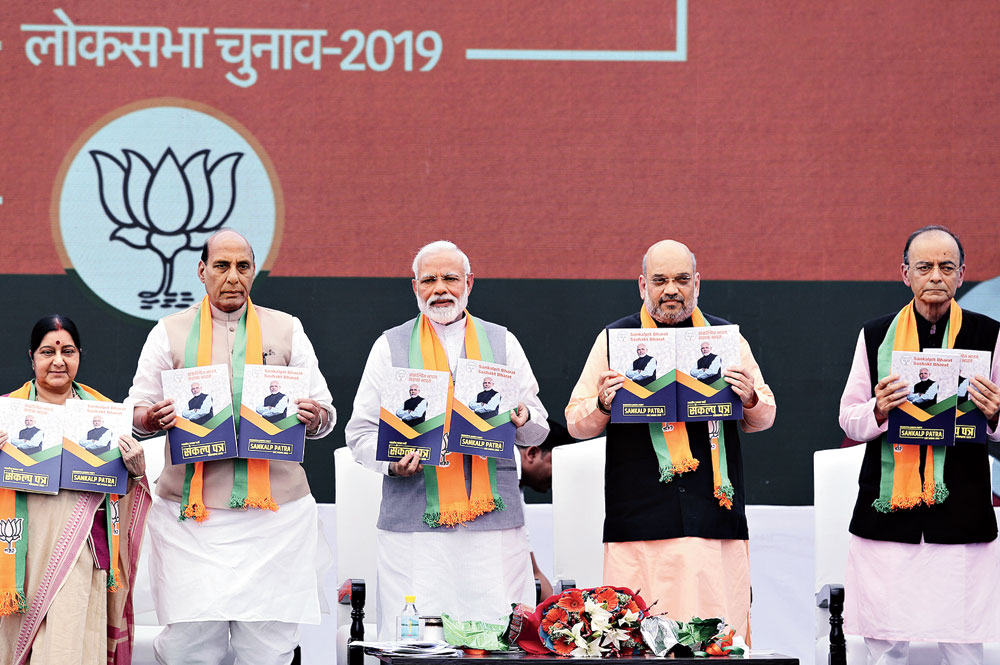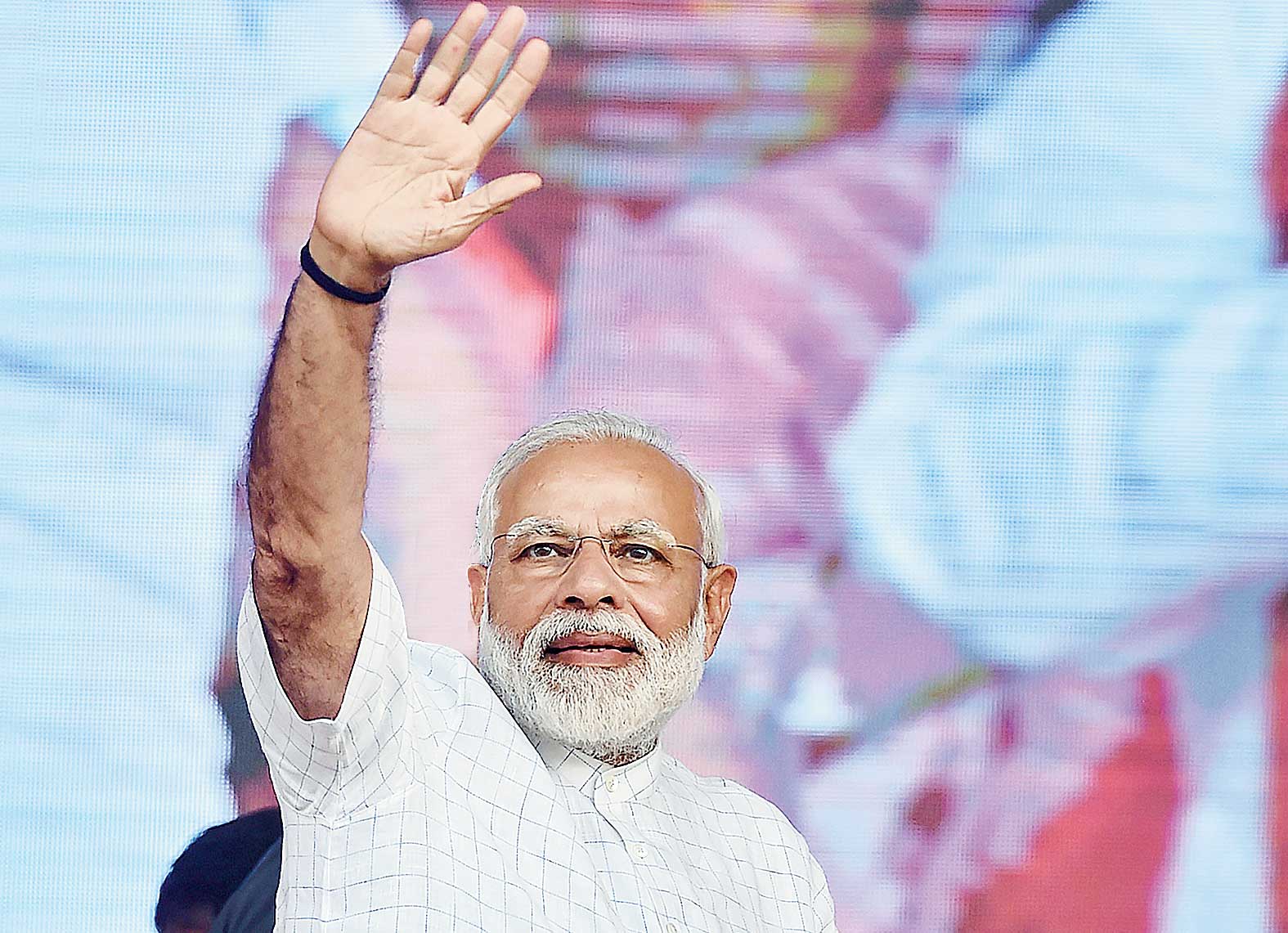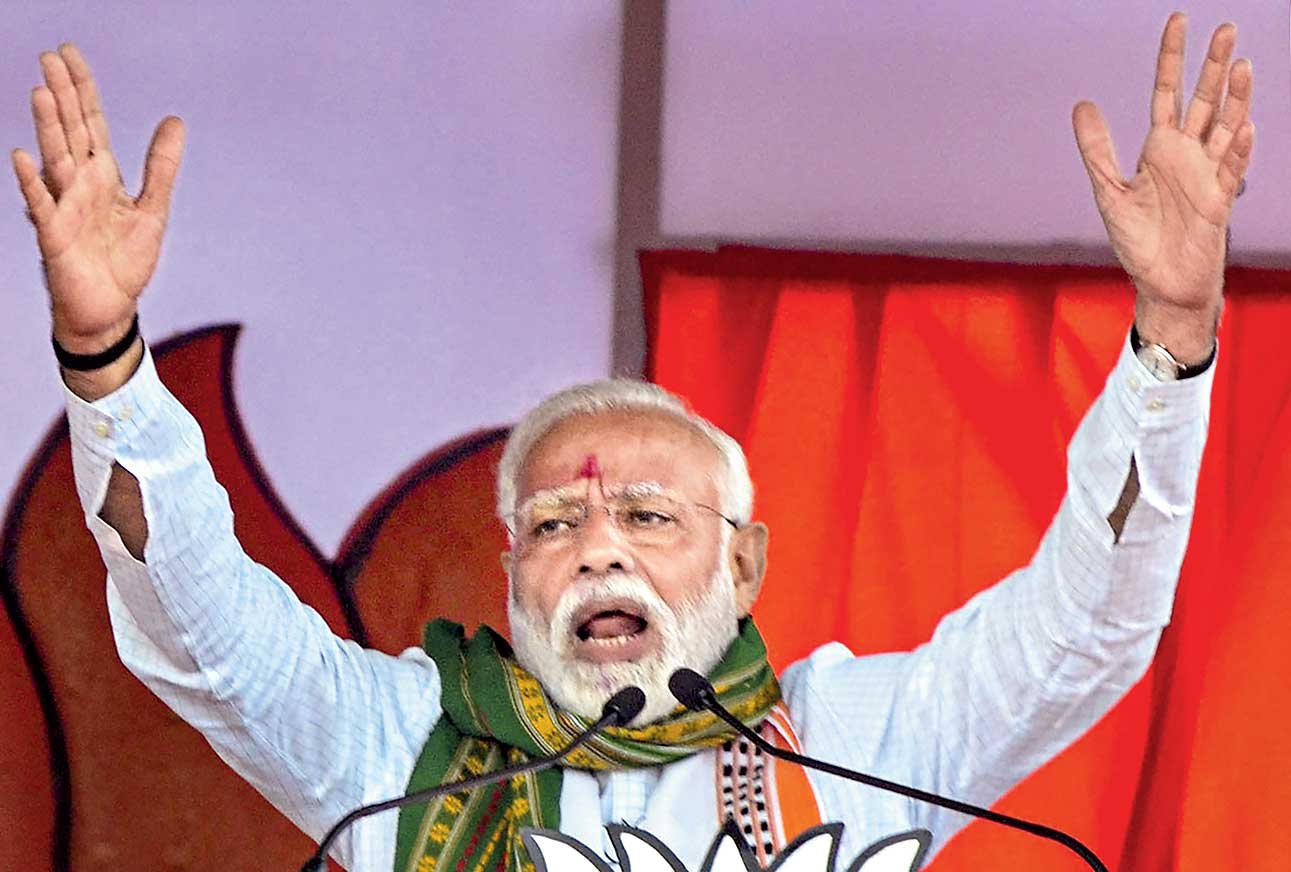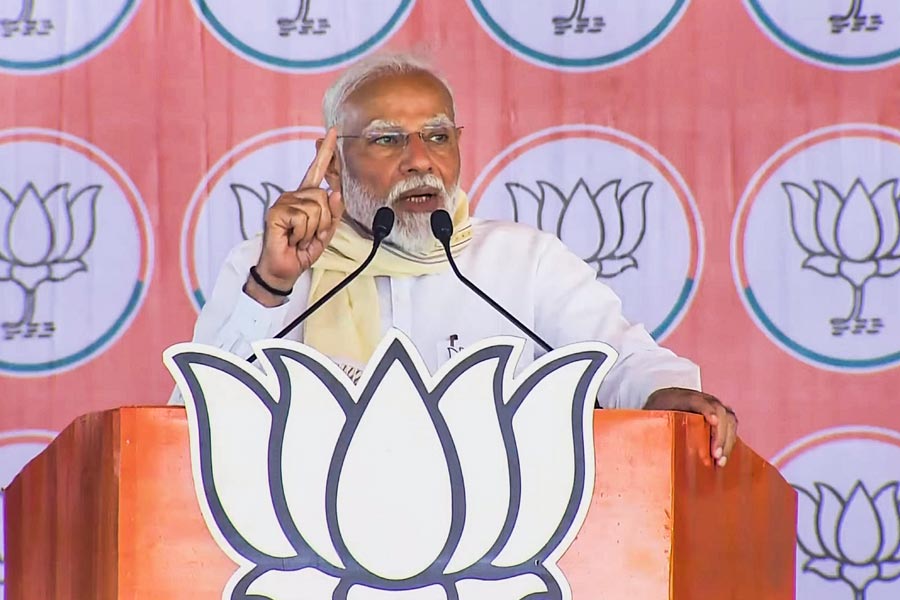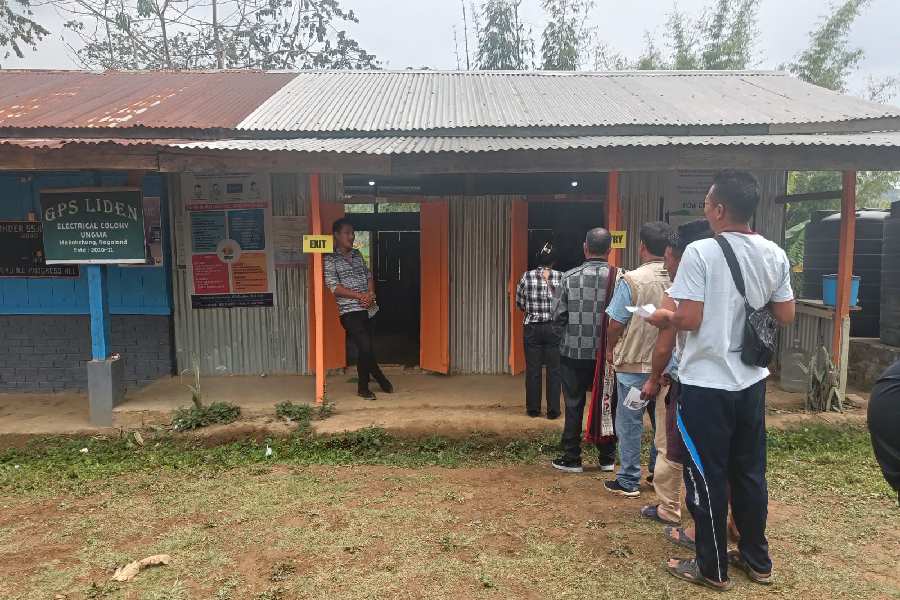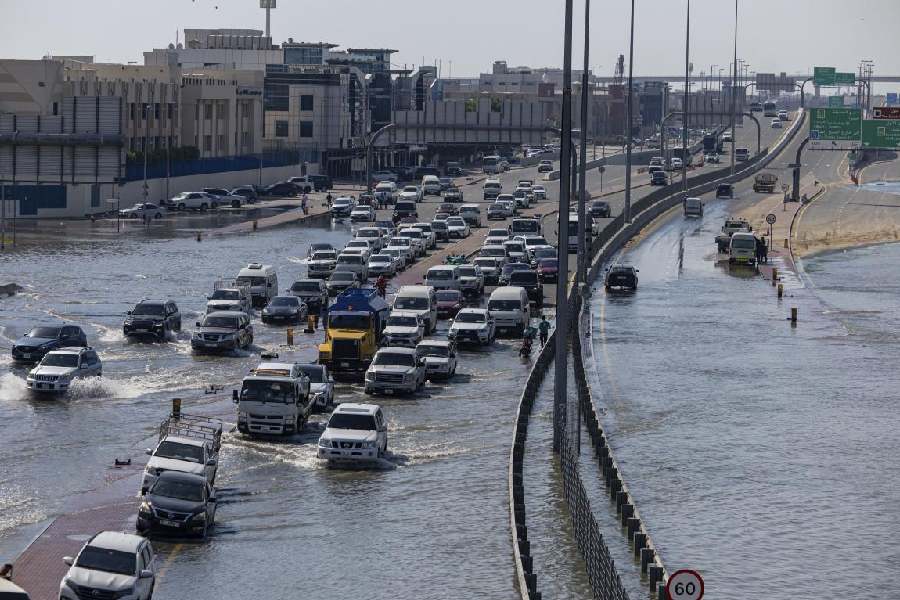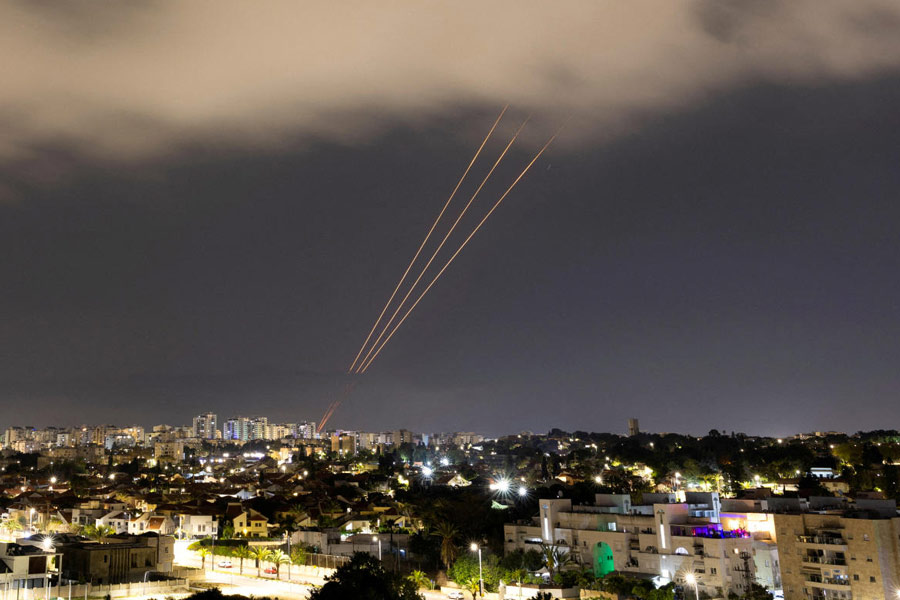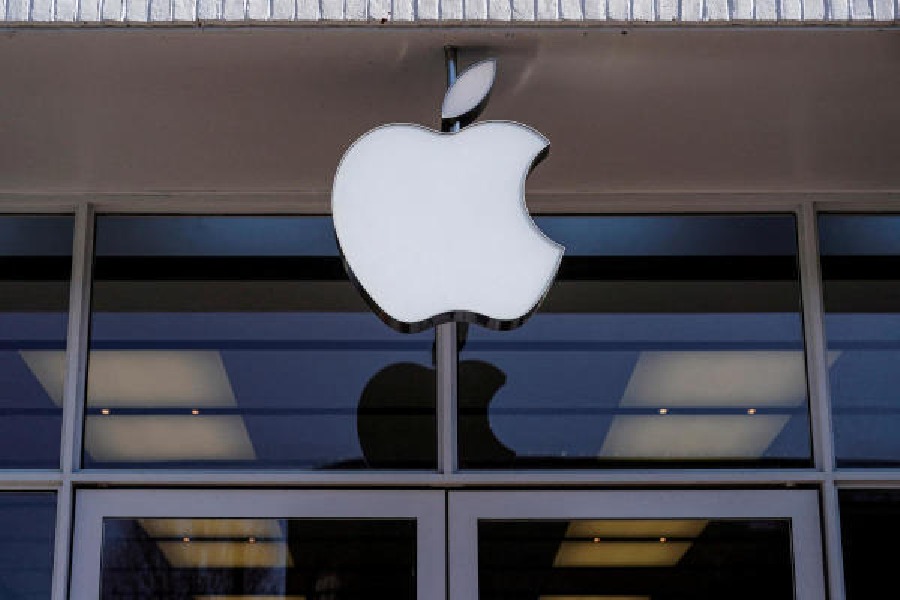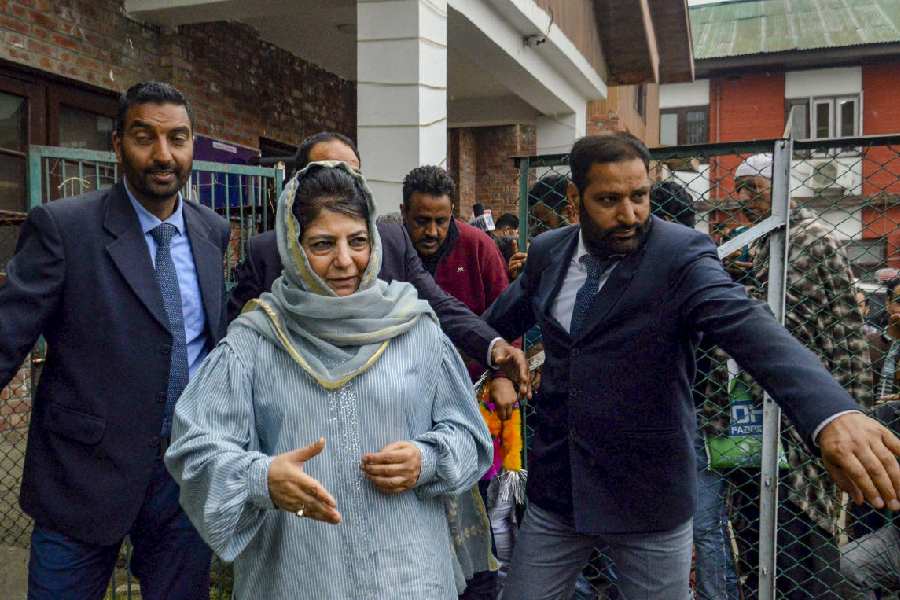Prime Minister Narendra Modi released the BJP’s manifesto for the 2019 general election on Monday, flanked by party president Amit Shah and other senior leaders and against a backdrop that only had his picture.
While Atal Bihari Vajpayee didn’t find a place on billboards at the party headquarters, the late Prime Minister’s sidelined contemporaries L.K. Advani and Murli Manohar Joshi — the chairman of the 2014 manifesto committee — didn’t make it to the dais.
Both Advani and Joshi have been denied nominations this time and Monday’s show confirmed their present status in the party.
For a change, though, home minister Rajnath Singh, external affairs minister Sushma Swaraj and finance minister Arun Jaitley not only found a place on the stage but were also allowed to speak.
The last five years have seen only Modi and Shah speak from podiums, the others remaining silent spectators.
Another change was Shah’s absence from the billboards and even the manifesto’s cover page — a break from the past five years that has seen him occupy almost equal space as Modi on party hoardings and posters.
This time it was Modi and no one else, unlike 2014 when Vajpayee, Advani, Joshi and Rajnath had found a place on the cover page of the manifesto. All that appeared to be history before the one-man Modi show.
The manifesto was to be released by members of the parliamentary board, the party’s highest decision-making body, but three members of the board — Union ministers Nitin Gadkari and J.P. Nadda and former Madhya Pradesh chief minister Shivraj Singh Chouhan — were not present.
Rajnath, Sushma and Jaitley got the opportunity to speak but had to wait a good 10-15 minutes in the heat for Modi and Shah to arrive. Apparently, they and some others had been asked to reach early and wait on the stage because of security reasons. All of them stood up and greeted Modi and Shah when the two arrived.
Shah, who spoke first, started from 2014 when he said that Modi, then chief minister of Gujarat, had emerged as the “symbol of the aspirations of the people of India”.
The history of India’s development in the last five years, he added, would be written in “golden letters”.
Shah claimed that Modi has delivered despite the difficulties posed by a “multiparty democratic system”, in what seemed a loaded comment in the backdrop of sustained allegations that democracy and democratic institutions have been in peril over the past few years.
“How difficult it is to work in a multiparty democratic system and federal structure like ours is known,” Shah, who wants the BJP to rule from “panchayat to Parliament”, added.
Rajnath, expected to speak as the chairman of the manifesto committee, took the microphone after Shah. He called the manifesto a vision document of the Modi government, described the government as “responsible” and “sensitive with a firm commitment” and said Modi had ended the “crisis of credibility” under the UPA regime.
Jaitley, who has been campaigning on social media through written and video blogs, spoke next. Unlike the others he spoke in English, seeking possibly to hit out at what the BJP despises the most — “Lutyens’ Delhi”.
The BJP’s manifesto presents a “roadmap of a continuing government”, he repeatedly stressed, oozing confidence that Modi would return to power.
“This sankalp patra is one of a government which is going to continue in power,” Jaitley said. “This manifesto in a season of manifestos is not prepared with a ‘tukde-tukde’ mindset,” Jaitley said, using a term coined against those who the BJP and its ideological brethren think are out to divide India.
“It’s not even prepared with an Ivy League mindset,” Jaitley added in what appeared to be a dig at some academics who have been critical of the Modi government.
Sushma, who has declared that she would not contest the election, was the last to speak before Modi. She lauded Modi for cornering Pakistan internationally and asked journalists to compare the BJP’s promise with that of the Congress’s.
Modi said the three main themes of the manifesto were nationalism, empowerment of weaker sections and good governance.
“Nationalism is our inspiration, empowerment of weaker sections is our vision and good governance is our mantra,” the Prime Minister said, adding the manifesto would take India on “one mission” and in “one direction”.

